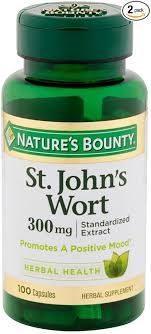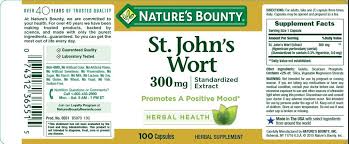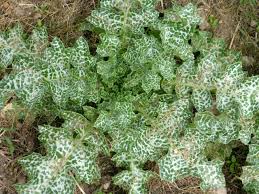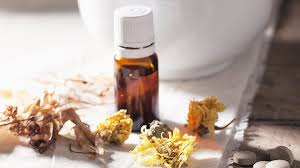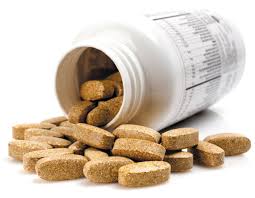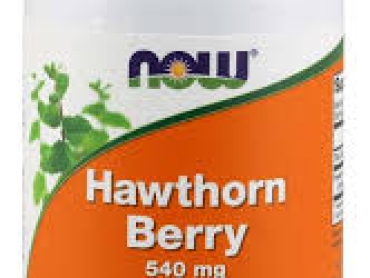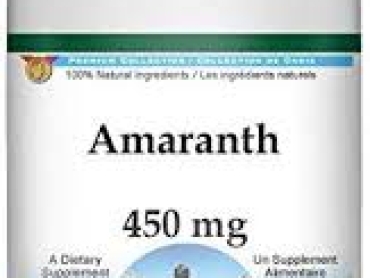St. John’s wort (Hypericum perforatum) is a flowering plant in the Hypericaceae family named for its bright yellow flowers that were said to bloom for the first time around St. John the Baptist’s birthday. The word “wort” means “plant” in Old English.
Commonly Known As
- Hypericum (from the scientific name)
- Goatweed
- Klamath weed
- Tipton weed
People have been using it for centuries. Today, the popular herb is often used to ease the symptoms of depression.
Health Benefits
St. John’s wort is widely believed to boost mood and provide some relief from depression, but it’s not exactly clear how it works.
One reason people may wish to try the natural remedy for depression (as opposed to antidepressants that can increase serotonin) is that St. John’s wort tends to have fewer side effects than medications.2
Similarly the herb is also being explored for the following health concerns: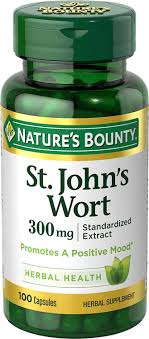
- Anxiety
- Menopause-related symptoms
- Premenstrual syndrome (PMS)
- Seasonal affective disorder (SAD)
- Smoking cessation
- Viral infections
An oil made from St. John’s wort has also been used topically for wound healing and a variety of other skin conditions such as eczema and hemorrhoids.
St. Johns Wort On Depression
Although the benefit of St. John’s wort is still being explored, research suggests the herb can be more effective than a placebo in alleviating mild-to-moderate depression.
St. Johns Wort On Major Depression
The most comprehensive research on St. John’s wort and major depression includes a 2018 report published in the Cochrane Database .
Researchers looked at 29 previously published clinical trials (with a total of 5,489 participants) that compared the effects of St. John’s wort to a placebo or standard antidepressant medication for a period of four to 12 weeks.
Similarly, the study’s authors found that its extracts may be more effective than a placebo and were as effective as standard antidepressants. Additionally, the herb appeared to have fewer side effects.
The authors noted that the studies conducted in German-speaking countries (where St. John’s wort has a long history of use and is often recommended by physicians) reported more positive results than studies conducted in the United States and other countries.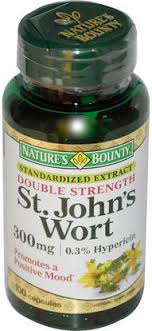
St. Johns Wort Possible Side Effects
People taking an oral St. John’s wort supplement for a short period of time may experience side effects. These may include:
- Firstly Mild stomach upset
- Secondly Diarrhea
- Thirdly Dry mouth
- Similarly Headache
- In the same vein Tiredness
- Additionally Dizziness
- Moreover you may have Anxiety
- Additionally restlessness
- Tingling
- Allergic skin reactions
- Sexual or erectile dysfunction
- Vivid dreams
- Liver injury
- Finally Psychosis (rare)
Generally when used topically, St. John’s wort may cause a skin rash. St. John’s wort (both oral or topical) can also increase the sensitivity of your skin and eyes to sunlight.
Possible Interactions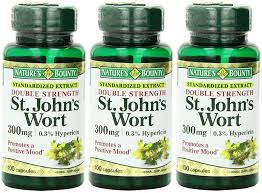
Also, it can cause serious interactions with commonly used medications because of how it gets broken down by the liver. The herb can interact with medication in different ways. Additionally it can make some drugs less effective while making the effect of others stronger.4
Generally the types of medications that may interact with this supplement include:
- Antibiotics
- Antidepressants
Oral contraceptives - Immunosuppressants
Blood thinners such as warfarin - Sedatives and medications used to treat anxiety
Drugs used to treat cancer, heart conditions, and HIV/AIDS - Finally over-the-counter medications (for sleep, coughs, and colds)
St. John’s wort can also interact with other herbs and supplements.
If you experience any of these symptoms, stop taking it and seek immediate medical attention. Without treatment, the condition can be fatal.
St. Johns Wort Contraindications
There may be certain situations where it would be unsafe for you to take a supplement such as St. John’s wort or you will need an adjusted dose.
For example, if you are pregnant, breastfeeding, trying to conceive, or taking oral contraceptives (birth control pills), it’s important to talk with your doctor before you start taking St. John’s wort.
Additionally some research has indicated taking certain herbal supplements, including this one, may increase your risk of complications if you are put under anesthesia. You should not take it for two weeks before having surgery.5
Similarly if you have received an organ transplant, you will need to avoid St. Johns wort as it can interact with the medications given to help prevent transplant rejection.
St. Johns Wort Dosage and Preparation
Generally there is not enough scientific data to provide a standard recommended dose of it.
In the same vein it can be found in several different preparations depending on how it will be used. There are dry, oil, and liquid preparations, including tinctures, capsules, and elixirs.
Generally each preparation of this supplement will have different potencies. In addition the strength may also vary from one supplement brand to another.
If you are taking it for depression, you may find taking a daily capsule more effective than using a topical treatment (which may be better suited to treating muscle pain, for instance).
In addition to help maintain its effectiveness, all preparations of the herb should be kept in a cool, dry, place. Active ingredients in it may be affected by light, which is why the supplements are often packaged in a dark-colored container. Finally make sure to store the bottle or package out of direct sunlight.
What to Look For
St. John’s wort is widely available in pharmacies, supermarkets, and health food stores and comes in different doses.
St. Johns Wort Conclusion
Finally if you or someone you know is living with depression, you may be seeking different options to manage your symptoms. While the research on this supplement is promising, it’s crucial that you work with your healthcare provider and discuss whether it’s appropriate for you, rather than trying it on your own.



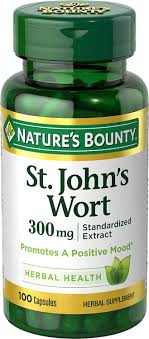
:max_bytes(150000):strip_icc():format(webp)/hypericum-perforatum-184362812-5a327b00842b170037bda918.jpg)
